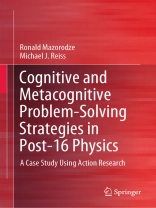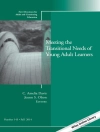This book reports on a study on physics problem solving in real classrooms situations.
Problem solving plays a pivotal role in the physics curriculum at all levels. However, physics students’ performance in problem solving all too often remains limited to basic routine problems, with evidence of poor performance in solving problems that go beyond equation retrieval and substitution. Adopting an action research methodology, the study bridges the `research-practical divide´ by explicitly teaching physics problem-solving strategies through collaborative group problem-solving sessions embedded within the curriculum. Data were collected using external assessments and video recordings of individual and collaborative group problem-solving sessions by 16-18 year-olds. The analysis revealed a positive shift in the students’ problem-solving patterns, both at group and individual level. Students demonstrated a deliberate, well-planned deployment of the taught strategies. The marked positiveshifts in collaborative competences, cognitive competences, metacognitive processing and increased self-efficacy are positively correlated with attainment in problem solving in physics. However, this shift proved to be due to different mechanisms triggered in the different students.
İçerik tablosu
Introduction: Problem solving and the curriculum.- What we know from the literature.- The study.- The findings.- Discussion and implications.
Yazar hakkında
Ronald Mazorodze is a Senior Lecturer in Education at the University of Suffolk, Associate Lecturer with the UCL’s College of Leadership and Learning and Visiting Science Education Lecturer with the University of Greenwich. Ronald has taught Physics in Cuba and Africa as well as conducting research and publishing on Physics problem solving with a focus on collaboration, metacognition and strategy instruction.
Michael J. Reiss is Professor of Science Education at UCL Institute of Education, University College London, a Fellow of the Academy of Social Sciences and Visiting Professor at the Universities of Kiel and York and the Royal Veterinary College. The former Director of Education at the Royal Society, he is a member of the Nuffield Council on Bioethics and has written extensively about curricula, pedagogy and assessment in science education and has directed a very large number of research, evaluation and consultancy projects over the past twenty five years funded by UK Research Councils, Government Departments, charities and international agencies.












